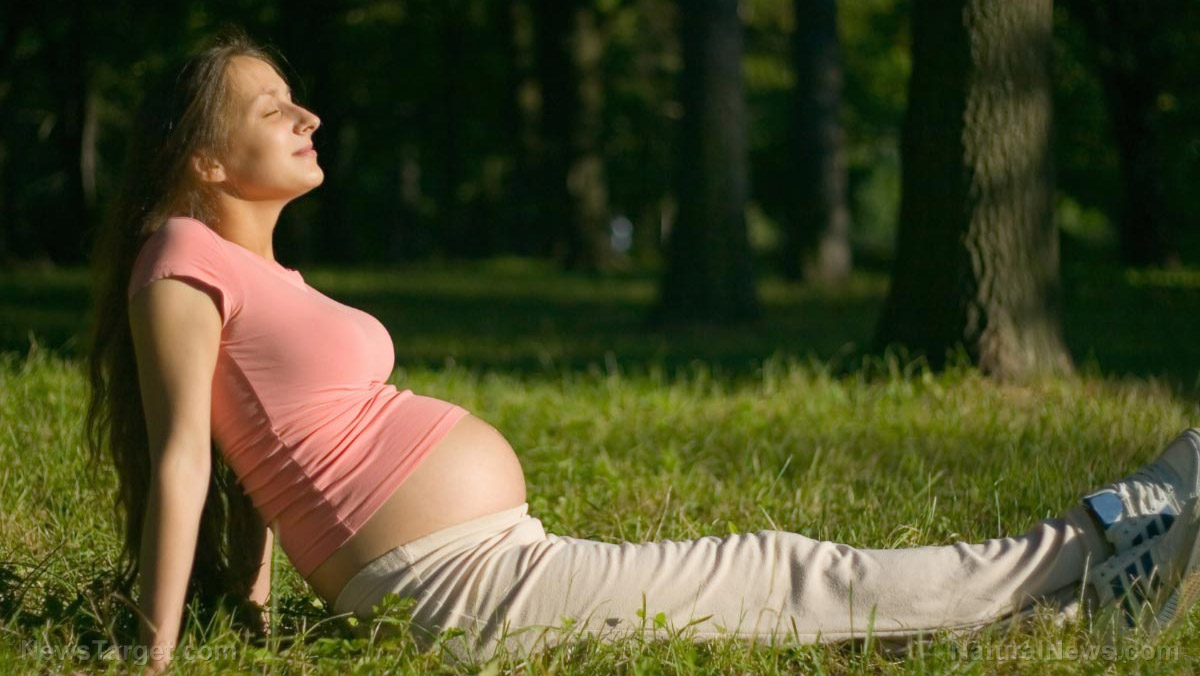Vitamin D deficiency during pregnancy linked to autism in children
01/24/2019 / By Zoey Sky

Vitamin D, also called the “sunshine vitamin,” does more than keep your bones and teeth healthy. According to a study, taking enough vitamin D when you’re pregnant can help lower your unborn child’s risk of developing autism.
The study, which was published in the journal Molecular Psychiatry, is part of “Generation R,” a large research project on youth in the Netherlands.
Vitamin D deficiency and autism in children
For the study, researchers analyzed the levels of vitamin D of more than 4,200 blood samples taken from both pregnant women and their children. The blood samples examined in the study were taken twice: once when the mother was 21 weeks pregnant, and once at birth.
After the children turned six years old, the parents taking part in the study were instructed to fill out a questionnaire called the “Social Responsiveness Scale.” The parents used the questionnaire to determine if their children were exhibiting “autism-related traits.”
The team of researchers noticed a crucial link after they compared the mothers’ vitamin D levels with the self-reported signs of autism in their children. The mothers with low vitamin D levels in their blood, or at least 36 percent of the female volunteers by the time they gave birth, had a higher chance of delivering a baby who showed autism-related traits once they turned six years old, compared to the women who had regular levels of vitamin D in their blood. (Related: BREAKTHROUGH: Vitamin D supplements taken during pregnancy found to prevent autism in children.)
The researchers believe that this isn’t new information, especially since earlier studies suggest that vitamin D is crucial for proper brain development. Previous research has also implied that a deficiency during pregnancy is linked to other conditions in children, like asthma and schizophrenia.
Keep in mind that this study determined a link between D deficiency and autism instead of proving that one caused the other. Another factor to remember is that the “autism-related traits” monitored in the study were self-reported by the parents and that the child did not receive an official diagnosis from a healthcare professional.
Despite these factors concerning the study, pregnant women need to get enough vitamin D to ensure their overall health and the well-being of their unborn children.
Tips for increasing your vitamin D intake while pregnant
If you’re with child, follow the tips below to increase your vitamin D intake:
- Bask in the sunshine vitamin. Sunbathe and expose your arms and face for at least 15 to 20 minutes every day before you apply sunscreen. Take note that women with darker skin will need to sunbathe for longer than 20 minutes.
- Be more conscious of your weight. Expectant mothers who are overweight or obese at the start of their pregnancy may have lower levels of vitamin D in their blood. Try to lose weight before you give birth, and do your best to avoid putting on too much weight during your pregnancy. About six kilograms (kg) of weight gain is normal for pregnant women. Consult a midwife to learn more.
- Eat fatty fish. Oily fish is the best natural source of vitamin D. Consume one portion of at least 140 grams a week. Sources include fresh tuna, mackerel, pilchards, salmon, and sardines.
- Eat other foods that are also rich in vitamin D. Other foods that contain vitamin D include fresh eggs and red meat. You can also eat vitamin D-fortified breakfast cereals.
- Take a vitamin D supplement. Pregnant women need to take a supplement with about 10 micrograms (mcg) of vitamin D every day.
You can read more articles about vitamin D-rich foods and the benefits of increasing your intake of the vitamin while pregnant at VitaminD.news.
Sources include:
Tagged Under: autism, autism-related traits, children's health, fruits, health, healthy babies, infant's health, natural cures, natural health, nutrients, nutrition, organics, pregnancy, Social Responsiveness Scale, sun, supplements, vitamin D, vitamin D deficiency, women's health


















